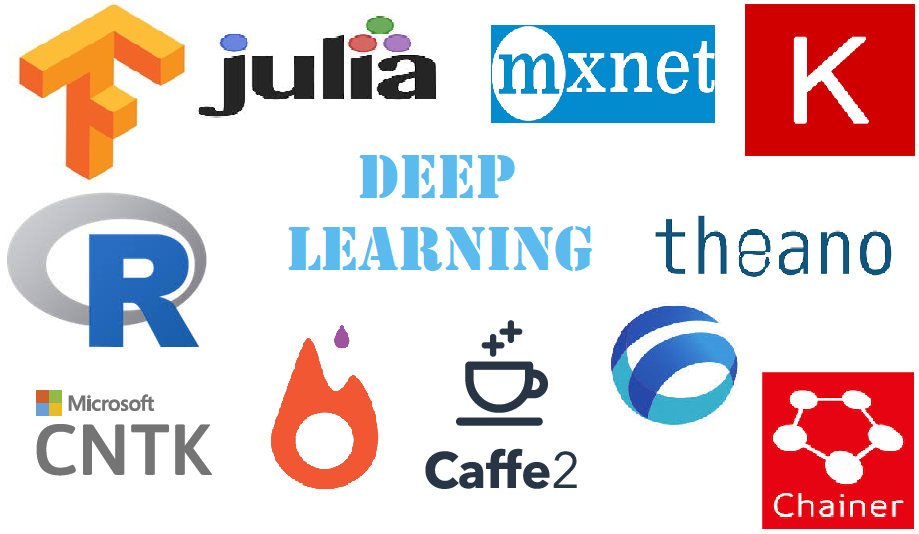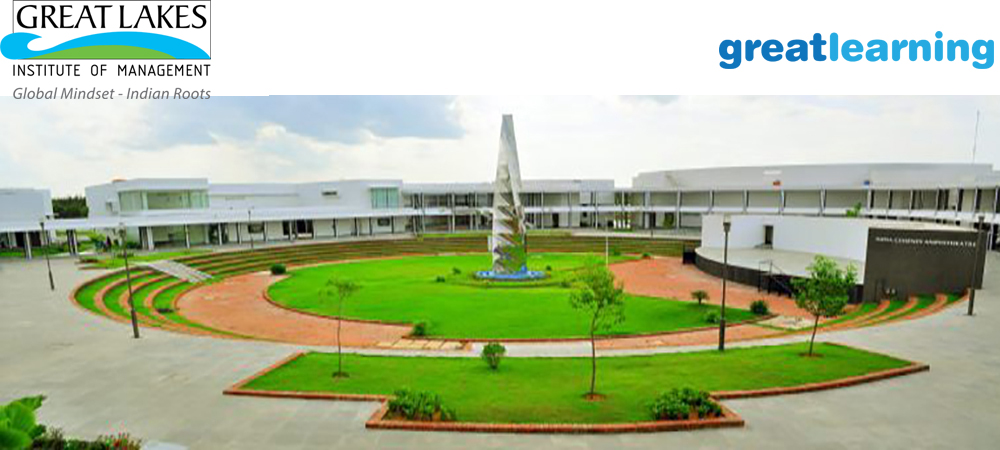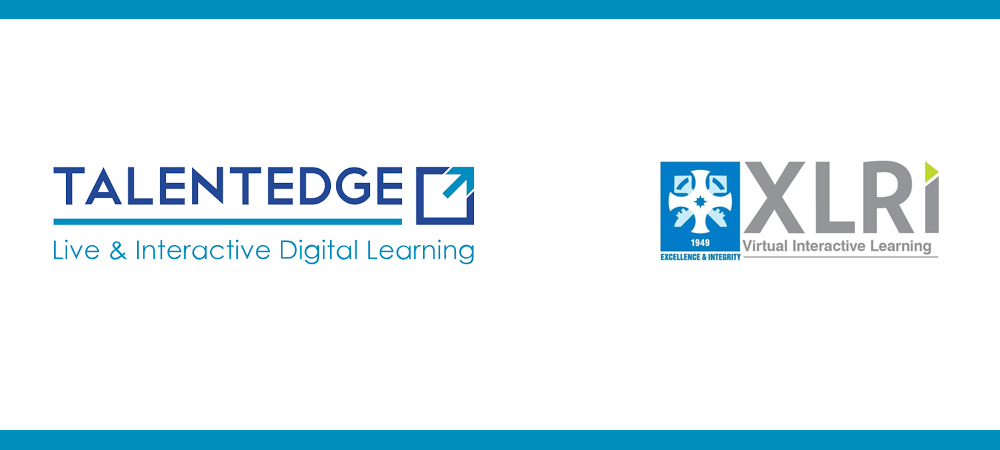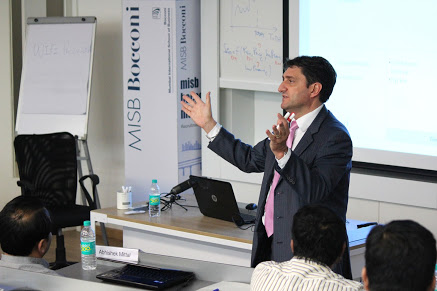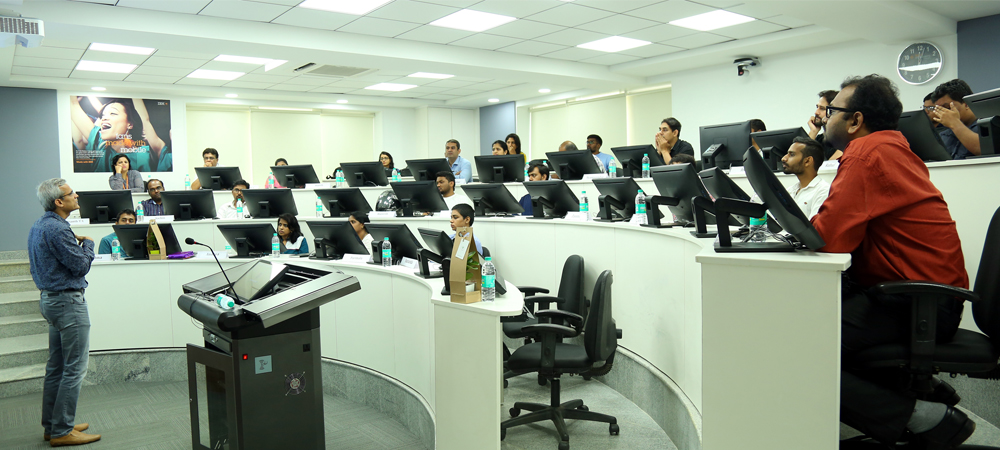![]()
A primary survey was conducted in August through September 2018, where 961 current and past students from 18 cities in India gave opinions on data science courses they attended. Out of these entries, few dozens in-depth interviews were done to understand the reasons for the submissions. This exercise helped in validating the data and providing a rationale for the rankings, wherever required.
A dedicated online questionnaire was created and the link was sent to more than 30 data science schools, of which 21 responded within the stipulated time.The participants were asked to fill an elaborated form with four key parameters — course content, faculty, student experience and other attributes such as external collaboration. Some of the other details under these parameters were course comprehensiveness, post-completion engagement of students, capstone projects and others.
Seven schools were rejected because of incomplete data, lack of supporting documents or not fulfilling the eligibility criteria. The eligibility criteria for this ranking was 1) The course should be a long term program in data science/ analytics (atleast 5 months), 2) Should be executed by (or in collaboration) with a university.
Information collected from the schools was combined with information received by the students. Out of those, we bring to you top 10 courses which have been analysed thoroughly by our team of experts. Students feedback and expert advice were also taken into consideration for the overall ranking process. Each of these parameters have been ranked on the scale of 1-5 where 1 is for worst and 5 for best. The institutes that could not be a part of the list either did not participate in the ranking process or could not make it to our list.
For top 1o courses on Artificial Intelligence in India, check this.
See our Top 10 Full Time Data Science Courses In India- Ranking 2018 here.
For top 10 data science training institute in India 2018, check here.
![]()
Founded: 2013
Mode of delivery: Blended
Course duration: 12 Months
Number of hours: ~440 with 240 hours of classroom learning and 200 hours of online learning
Cities of operation: Mumbai, Bengaluru, Delhi NCR, Chennai, Hyderabad, Kolkata, Pune, Online
Course Fees: ₹ 395000 + GST, ₹ 170000 + GST (Online)
Great Learning is an ed-tech company that offers programs in career critical competencies such as Analytics, Data Science, Big Data, Machine Learning, Artificial Intelligence, Cloud Computing and more. Great Learning programs are taken by several thousands of professionals every year by a network of 400+ Great Learning Gurus. They boast an alumni network of more than 3000 professionals working across organisations in India and beyond.
Parameter 1: Course Content (Rating 4.9)
Comprehensiveness: PGP-BABI uses a combination of learning methods such as classroom teaching, self-learning through videos and reading materials, team-based problem solving and others. The exhaustive course curriculum includes foundation (foundation in Statistics using R, business and management concepts), analytical techniques (R, Python, Tableau SAS) and domain application and industry exposure. They have a capstone project of 3 months, while the course is updated every 6 months.
Accessing students at the end of the course: Following a continuous evaluation, the students participate in group projects, individual assignments, quizzes and group discussions in every course. Students are tested for their conceptual understanding and ability to apply various analytics techniques in real-world problem.
Learning resources: Books, downloadable resources, LMS, videos, question papers. Students can also work on a number of practice exercises and datasets provided by them.
Parameter 2: Faculty (Rating 4.9)
Total no. of faculty members: 87
Total no. of faculty members with a PhD: 31
Total no. of faculty members with industry experience: 87
Student to faculty ratio: 16:1
Parameter 3: Student Experience (Rating 4.8)
Percentage of students who completed the course: 91%
Post-completion engagement: Every graduating student becomes a Great Lakes Alumni and are invited to all alumni and networking events. They also have lifetime access to a repository of learning material which is continuously updated.
Placement assistance: They provide full placement assistance. 66% of the alumni are working across companies such as Deloitte, KPMG, Gartner, RBS, Cognizant and others.
Parameter 4: Other Attributes (Rating 4.9 )
Entry criteria for students: Industry experience required + Personal Interview
External collaboration: They have collaborated with over 400+ industry experts from companies like Microsoft, Accenture, Deloitte, EXL, WNS, Cognizant, American Express, Absolute Data, HSBC, etc. who design, deliver, and endorse the program. Other notable collaborations are with Bajaj Allianz, WNS Global, XL Catlin for Ideathons, Hackathons, live capstone projects and customized training programs
The overall rating is 4.87
![]()
Founded: 2011
Mode of delivery: Blended
Duration of the course: 10 months
Number of hours: 650
Cities of Operation: Bangalore, Delhi NCR, Hyderabad
Course Fees: ₹ 3.65 lakhs + taxes
Jigsaw Academy has been key in contributing to the evolution of analytics talent in the country, having produced over 50,000+ data scientists across the globe. They offer training on multiple popular & niche tools in Data Science, Machine Learning, Big Data and AI technologies that are used globally.
Parameter 1: Course Content (Rating 4.9)
Comprehensiveness: PGPDM includes exhaustive coverage of Data Science and Machine Learning (R, Python & SAS), Big Data (Hadoop, HDFS, Pig, Hive and Spark), and Visualization (Tableau). The program starts from the basics of statistics and covers the entire gamut of descriptive analytics, predictive analytics as well as AL & ML. It includes hands-on program from case studies across BFSI, retail, telecom, supply chain, HR and other industries. The capstone project is for more than 3 months and course is update every 6 months.
Accessing students at the end of the course: PGPDM has a multiple-assessment policy, which includes case studies, assignments, capstone projects, and more. Only those students who pass graded assignments in all the modules and those students who complete corporate projects as per the company’s satisfaction are given the final certificate.
Learning resources: Downloadable resources, LMS, videos, industry lectures, capstone projects, instructor-led classes, assignments
Parameter 2: Faculty (Rating 4.8)
Total no. of faculty members: 60
Total no. of faculty members with a PhD: 20
Total no. of faculty members with industry experience: 60
Student to faculty ratio: 1:5
Parameter 3: Student Experience (Rating 4.7)
Percentage of students who completed the course: 95%
Post-completion engagement: They are a part of the alumni network, invited as guest lectures for future batches & become a part of Jigsaw mentorship program
Placement assistance: Provided full assistance through alumni network, resume designing and helping them with interview process
Parameter 4: Other Attributes (Rating 4.7)
Entry criteria for students: Application + Interview
External collaboration: They have tie-ups the University of Chicago Graham School, along with industry associations with companies like Axteria, Analytics Edge, Tata Motors, Smart Cube, Data Semantics for projects and hiring.
The overall rating is 4.77
![]()
Founded: 2016
Mode of delivery: Online
Duration of the course: 6 months
Number of hours: 650
Cities of Operation: Bangalore, the program is online and hence applicable irrespective of location
Course Fees: ₹ 84,000 + taxes
A part of MaGE, Manipal ProLearn is a pioneer in higher education and allied services. It offers a variety of cutting-edge learning solutions and professional certification courses across IT, Digital Marketing, Data Sciences, Project Management, and others. The Academy of Data Science runs the popular data science certification program to help build a community of industry-ready data scientists.
Parameter 1: Course Content (Rating 4.7)
Comprehensiveness: Designed with optimal blend of rigour and relevance, it covers in-depth and industry-relevant content. Course comprises of real-world business case studies and live online lectures from industry practitioners. It covers Java programming, advanced excel, R, introduction to Python, data visualisation tools, big data technologies, business communication and others. They do not offer capstone projects and course is updated every 6 months.
Accessing students at the end of the course: Learners undergo online quizzes for every topic and online assessments for every module.
Learning resources: Downloadable resources, LMS, videos, question papers, industry webinars on relevant topics for improved understanding of application of learning
Parameter 2: Faculty (Rating 4.7)
Total no. of faculty members: 18
Total no. of faculty members with a PhD: 5
Total no. of faculty members with industry experience: 12
Student to faculty ratio: 10:1
Parameter 3: Student Experience (Rating 4.7)
Percentage of students who completed the course: 95
Post-completion engagement: Student get access to learning content and is invited as alumni for all learning webinars, meet-ups and other activities
Placement Assistance: None
Parameter 4: OtherAttributes (Rating 4.6)
Entry criteria for students: Entrance exam
External collaboration: Manipal Academy of Higher Education, Equifax, Gramener
The overall rating is 4.67
![]()
Founded: 2015
Mode of delivery: online
Duration of the course: 11 months
Number of hours: 500
Cities of Operation: UpGrad is an online learning platform
Course Fees: ₹ 2,35,000
Founded by media stalwart Ronnie Screwvala, UpGrad is an online higher education platform that provides rigorous industry-relevant programs designed and delivered in collaboration with renowned faculty and industry experts.
Parameter 1: Course Content (Rating 4.6)
Comprehensiveness: The curriculum has been designed along with IIIT Bangalore and multiple industry leaders. The broad areas of focus are data management (Excel, Python, SQL, Tableau), statistical and exploratory data analysis, machine learning, big data analytics (Hive, Spark, Sqoop). The candidates select specialisation of their choice in BFS, ecommerce, retail or healthcare. The course includes capstone project of 1-3 months. The course is updated every 6 months.
Accessing students at the end of the course: Students are assessed with the help of objective questions, individual assignments, group case studies with personalised feedback by industry experts. Participation in class, online discussion forums and online proctored exams contribute to overall CGPA of the learner.
Learning resources: Downloadable resources, LMS, videos, question papers, online virtual labs for Big Data
Parameter 2: Faculty (Rating 4.5)
Total no. of faculty members: 18
Total no. of faculty members with a PhD: 12
Total no. of faculty members with industry experience: 17
Student to faculty ratio: 10:1
Parameter 3: Student Experience (Rating 4.6)
Percentage of students who completed the course: 84%
Post-completion engagement: Career support guidance for one year after course completion, access to new and re-developed content, alumni network, opportunity to mentor subsequent cohort learners.
Placement assistance: Assistance is provided through alumni network, resume designing, helping them with interview process, 1-1 mentoring by industry expert, placement drives, help identify correct job profile, resources for interview and test preparation, and others.
Parameter 4: Other Attributes (Rating 4.5)
Entry criteria for students: Entrance exam
External collaboration: The program has flagship partnership with Uber, Genpact, Fractal Analytics and Gramener. They have collaboration with 30+ analytics industry experts from leading corporations and 250+ recruitment partners such as KPMG, Tech Mahindra, Zivame and others.
The overall rating is 4.55
![]()
Founded:2011
Mode of delivery: Blended
Duration of the course: 10 months
Number of hours: 650
Cities of Operation: Online, global
Course Fees: ₹ 4.9 lakhs + taxes
Headquartered in Bengaluru, it was founded by the duo of Gaurav Vohra and Sarita Digumarti, and funded by Manipal Global Education Services (MaGE). It trains professionals in the areas of Analytics, Data Science, Big Data, Machine Learning, Business Analytics, and more recently, the Internet of Things (IoT).
Parameter 1: Course Content (Rating 4.5)
Comprehensiveness: The EPBA has the most comprehensive curriculum in Data Science &, Big Data in India. Along with SDA Bocconi, it provides unique and exhaustive course which includes analytics (R, Python, SAS), Big Data (Hadoop, Pig, Hive, Sqoop, Flume, Spark and Storm), Visualization (Tableau, Power BI). It also covers descriptive analytics, predictive analytics, machine learning, an introduction to neural networks. It involves capstone project of more than 3 months, with course updation in every 6 months.
Access students at the end of the course: Graded assignments, capstone project and viva interviews
Learning resources: Downloadable resources, LMS, videos, question papers, case studies & online content
Parameter 2: Faculty (Rating 4.5)
Total no. of faculty members: 40
Total no. of faculty members with a PhD: 25
Total no. of faculty members with industry experience: 40
Student to faculty ratio: 1:2
Parameter 3: Student Experience (Rating 4.4)
Percentage of students who completed the course: 95
Post-completion engagement: They are a part of Bocconi Alumni Network, Guest Lectures for future batches & Jigsaw Mentorship Program
Placement assistance: Full assistance through alumni network, resume designing, helping them with interview process
Parameter 4: Other Attributes (Rating 4.4)
Entry criteria for students: Application + Interview
External collaboration: Collaboration with SDA Bocconi, Milan. Industry collaboration with Axteria, Analytics Edge, Tata Motors, Smart Cube, Data Semantics, and more for projects and hiring.
The overall rating is 4.45
![]()
Founded:1949
Mode of delivery: Blended
Duration of the course: 12 months
Number of hours: 300
Cities of Operation: Jamshedpur
Course Fees: ₹ 2,60,000 +GST
XLRI has visualised itself to be a partner in the liberation and development journey of the independent India. Over many years XLRI has developed its own identity and is one of the most premier institutes.
Parameter 1: Course Content (Rating 4.3)
Comprehensiveness: One of the most comprehensive programs in analytics, it offers 13 core courses in four broad areas of descriptive analytics, predictive analytics, prescriptive analytics and application based courses. It provides hands-on in tools such as R, Excel, Python. Students can also opt for specialisation certificate apart from the main PGCBAMD certificate, which could be in finance, marketing, operations, HR. They do not have capstone projects. The course is updated every year.
Access students at the end of the course: The assessments are done based on assignments, quizzes, midterm and end terms exams. Attendance and class participation are also used as a criterion by some faculties.
Learning resources: Books, downloadable resources, LMS, question papers, study materials in soft copy format like PDF, ppt etc.
Parameter 2: Faculty (Rating 4.4)
Total no. of faculty members: 18
Total no. of faculty members with a PhD: 16
Total no. of faculty members with industry experience: 18
Student to faculty ratio: 36:1
Parameter 3: Student Experience (Rating 4.3)
Percentage of students who completed the course: 95
Placement assistance: None
Parameter 4: Other Attributes (Rating 4.3)
Entry criteria for students: Based on eligibility criteria and personal Interview
External collaboration: Apart from the regular faculties of XLRI, the program also has instructors who are either industry experts or are part of some other esteemed institutes like XIMB, TAPMI etc.
The overall rating is 4.32
![]()
Founded: 2012
Mode of delivery: Blended
Duration of the course: PGDM – One year, MBA – Two years
Number of hours: 960
Cities of Operation: Bangalore
Course Fees: PGDM- ₹ 3.2 Lakhs, MBA- ₹ 4.2 lakhs
RACE is an initiative of REVA University, created to develop visionary enterprise leaders for corporates. RACE offers a range of specialised, techno-functional programs specially designed to suit the needs of working professionals to enhance their careers. The flagship program in Business Analytics is well recognized by the industry.
Parameter 1: Course Content (Rating 4.4 )
Comprehensiveness: The program designed with IBM provides hands-on training on relevant software tools and business analytics framework across industries. The program covers descriptive, predictive, prescriptive and cognitive analytics in real-life scenarios. The participants work on 15 plus tools including Python, R, TensorFlow, Keras, Advanced MS-Excel, Rapidminer, Tableau, QlikView, IBM Cognos and others. They have capstone projects of more than 3 months. The course is updated every 6 months.
Access students at the end of the course: This program follows a continuous assessment and grading pattern. Evaluations are done both internally and externally. Internal assessment is based on in-class quiz, discussions, participation in the discussion, while external is based on off-campus projects.
Learning resources: Books, downloadable resources, LMS, videos, question papers, online repository of 3,000+ electronic journals, access to IEL online database.
Parameter 2: Faculty (Rating 4.3 )
Total no. of faculty members: 14
Total no. of faculty members with a PhD: 4
Total no. of faculty members with industry experience: 14
Student to faculty ratio: 4:1
Parameter 3: Student Experience (Rating 4.2 )
Percentage of students who completed the course: 90
Post-completion engagement: All the participants get to enjoy lifelong access to the LMS, job portal, hackathons, information seminars etc. They also get to write blogs, white papers and research articles in various conferences and for RACE online media.
Placement assistance: Assistance through alumni network, resume designing, helping them with interview process.
Parameter 4: Other Attributes (Rating 4.2 )
Entry criteria for students: Entrance exam and industry experience of a minimum of 4 years.
External collaboration: The program is delivered in association with IBM. Other delivery and knowledge partners include Predictive Analytics Pvt. Ltd, Jigsaw Academy.
The overall rating is 4.27
![]()
Founded: 1994
Mode of delivery: Online
Duration of the course: 9 months
Number of hours: 120 hours
Cities of Operation: Presence across 22 cities with 75+ Authorised Enrolment Partners in India
Course Fees: ₹ 1,10,000
NGASCE is India’s leading management university trusted by 35,000+ students and over 5,000 alumni members are recognised across 2,500 corporates. The programs are designed to suits requirements of working professional and provide features such as learning on the go with mobile app.
Parameter 1: Course Content (Rating 4.2 )
Comprehensiveness: The big data and machine learning executive program is powered by SAS. It covers foundation course (business statistics, basic analytics tools and concepts like predictive, descriptive analytics), ANOVA, regression analytics, logistic regression, decision trees, cluster analysis, neural networks and others. They do not offer capstone projects, and course is updated every 6 months.
Access students at the end of the course: Proctored exams conducted at designated exam centres for each module with minimum passing percentage of 50. For practical learning, students are asked to present a case analysis in their respective specialisation.
Learning resources: Books, downloadable resources, LMS, videos, question papers, 24/7 software access via AWS.
Parameter 2: Faculty (Rating 4.3 )
Total no. of faculty members: 10
Total no. of faculty members with a PhD: 5
Total no. of faculty members with industry experience: 10
Student to faculty ratio: 1:3
Parameter 3: Student Experience (Rating 4.1 )
Percentage of students who completed the course: 60%
Post-completion engagement: Students are provided with a certified e-badge that can be tagged on professional networks such as LinkedIn and other social media pages.
Placement assistance: Partial assistance through alumni network
Parameter 4: Other Attributes (Rating 4.1 )
Entry criteria for students: STEM background required
External collaboration: This program is designed in collaboration with SAS.
The overall rating is 4.17
![]()
Founded: 1980
Mode of delivery: Blended
Duration of the course: 6 months
Cities of Operation: Ghaziabad
Course Fees: ₹ 80,000 + GST*
IMT Ghaziabad is a fully autonomous university and offers several postgraduate, doctorate and executive education programmes in management.
Parameter 1: Course Content (Rating 4.1 )
Comprehensiveness: The curriculum combines academic excellence and industry relevance to facilitate the participants learn analytics and big data tools (Apache), followed by in depth and advance level of statistical and quantitative. Students are given hand-on exposure to tools such as R, SAS, Python, Hive, Cloudera, data visualisation tools, and others. It includes capstone projects with top analytics companies. The course is updated every year.
Accessing students at the end of the course: Continued evaluation of students throughout the course.
Learning resources: Downloadable material, access to analytics labs during tenure of course
Parameter 2: Faculty (Rating 4.0 )
98% of in-house faculties having PhD.
Parameter 3: Student Experience (Rating 4.1)
Percentage of students who completed the course: 90%
Post-completion engagement: Candidates get IMT MDP alumni status. ICDM, a data management conference is organised by the institute.
Placement assistance: Students opting for this course are provided with placement support.
Parameter 4: Other Attributes (Rating 4.0)
Entry criteria for students: Industry experience
External collaboration: IMT has many industry associations and international collaborations. IMT has 50+ International collaborations towards various academic modules co-teaching and joint learning.
The overall rating is 4.05
![]()
Founded: 1970
Mode of delivery: Classroom
Duration of the course: 10 months
Number of hours: 266
Cities of Operation: Chennai and Sricity
Course Fees: ₹ 2.5 Lakhs
IFMR has been successfully offering PhD programs, MBA programs and executive programs for more than 2 decades now. It was established in 1970 as a not-for-profit society and has been sponsored by ICICI, the House of Kotharis and other major industrial groups. The board includes experts from Yale University, IISC Bangalore, and others.
Parameter 1: Course Content (Rating 4.0)
Comprehensiveness: Curriculum encompasses three important dimensions— mathematics & statistics, programming and application domains. It includes programming skills such as R and Python, predictive analytics, data mining and machine learning. Participants are provided hands-on sessions on SPSS Statistics, SPSS Modeler etc. It includes capstone projects of 1-3 months and course is updated every year.
Accessing students at the end of the course: Participants have to take a written examination after the completion of each module, which is evaluated by faculties. Candidates also have to submit POC during the last 3 months, which is also evaluated.
Learning resources: Books, downloadable resources, videos, question papers, class notes, powerpoint slides
Parameter 2: Faculty (Rating 4.1)
Total no. of faculty members: 16
Total no. of faculty members with a PhD: 7
Total no. of faculty members with industry experience: 11
Student to faculty ratio: 1:1
Parameter 3: Student Experience (Rating 3.9)
Percentage of students who completed the course: 90
Post-completion engagement: Alumni group is set up for continued engagement
Placement assistance: Partial assistance through alumni network, resume designing, helping them with interview process, setting up interviews for the participants
Parameter 4: Other Attributes (Rating 3.9)
Entry criteria for students: Industry experience required
External collaboration: We have a collaboration with IBM for joint certification for the program. The IBM collaboration gives us specific expertise in some industry domains such as BFSI, Telecom, Health care and manufacturing.
The overall rating is 3.98
Your Opinion Matters
Note: There is a poll embedded within this post, please visit the site to participate in this post's poll.
The post Top 10 Executive Data Science Courses in India – Ranking 2018 appeared first on Analytics India Magazine.
![investor-01]()
![investor-03]()
![investor-04]()
![investor-05]()
![investor-06]()
 Creditease Holdings is a FinTech company from China, which offers wealth management services. Its primary investment interests are in sectors such as insurance technology, blockchain and similar business horizons. It also provides loan-advisory services to people. Active.ai was funded by Creditease jointly with Vertex Ventures and Dream Incubators for $8.25M.
Creditease Holdings is a FinTech company from China, which offers wealth management services. Its primary investment interests are in sectors such as insurance technology, blockchain and similar business horizons. It also provides loan-advisory services to people. Active.ai was funded by Creditease jointly with Vertex Ventures and Dream Incubators for $8.25M.  Sistema Asia Fund is a venture capital arm of Russian investment conglomerate, Sistema for financial operations in South Asia. The subsidiary is headquartered in Singapore. The target companies for investment include high-profile tech companies which are in mid-development stage — Series B and later funding rounds. Mobikon, an analytics startup which provides marketing automation assistance for restaurants, was funded by Sistema Asia Fund, Qualgro and C31 Ventures in a three-member joint funding with Sistema leading the funding round.
Sistema Asia Fund is a venture capital arm of Russian investment conglomerate, Sistema for financial operations in South Asia. The subsidiary is headquartered in Singapore. The target companies for investment include high-profile tech companies which are in mid-development stage — Series B and later funding rounds. Mobikon, an analytics startup which provides marketing automation assistance for restaurants, was funded by Sistema Asia Fund, Qualgro and C31 Ventures in a three-member joint funding with Sistema leading the funding round. General Catalyst is a private equity venture capital firm that funds early-stage investments. It is headquartered at Cambridge, USA with offices in Palo Alto,USA and New York City, USA. Their specific areas of investment interests are advanced materials, clean energy solutions, cybersecurity, mobile computing and related technologies. Julia Computing, an analytics startup specialising in developing Julia programming language, and services based on the language, got a joint seed funding of $4.6M from General Catalyst and Founder Collective with the former leading the round.
General Catalyst is a private equity venture capital firm that funds early-stage investments. It is headquartered at Cambridge, USA with offices in Palo Alto,USA and New York City, USA. Their specific areas of investment interests are advanced materials, clean energy solutions, cybersecurity, mobile computing and related technologies. Julia Computing, an analytics startup specialising in developing Julia programming language, and services based on the language, got a joint seed funding of $4.6M from General Catalyst and Founder Collective with the former leading the round.  Kalaari Capital is an Indian venture capital firm based in Bengaluru. It provides mid-stage and late venture fundings typically Series A and Series B funding in the finance sector. The target sectors for funding is usually tech-savvy companies that assist finance firms such as e-commerce, retail and telecom services. EdGE Networks, a Bengaluru-based human resource analytics startup was financed by Kalaari Capital for $4.5M in a Series A round, with Ventureast joining the funding.
Kalaari Capital is an Indian venture capital firm based in Bengaluru. It provides mid-stage and late venture fundings typically Series A and Series B funding in the finance sector. The target sectors for funding is usually tech-savvy companies that assist finance firms such as e-commerce, retail and telecom services. EdGE Networks, a Bengaluru-based human resource analytics startup was financed by Kalaari Capital for $4.5M in a Series A round, with Ventureast joining the funding. 







































